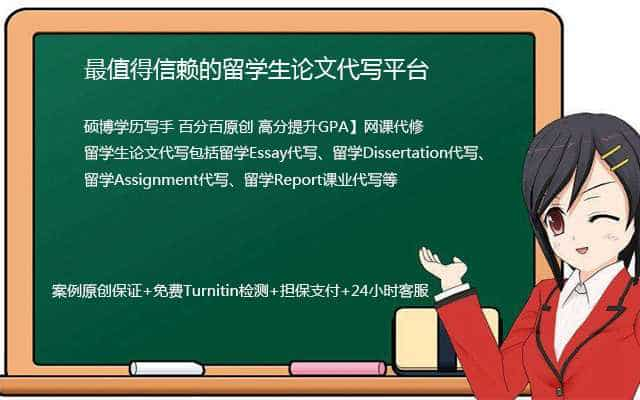
社会学essay高分代写_专业高分assignment代写
社会学论文代写技巧,社会学高分essay代写,高分assignment代写,专业作业代写社会学
Against Assisted Suicide and Euthanasia
Life is just like a one-way ticket, and don’t hurry to end the trip. As a rule, euthanasia means the physician “takes some action to end a patient’s life” while the assisted suicide the patient end his or her life with the means supplied by the physician. (“Bioethics, Euthanasia, and Physician-Assisted Suicide”) People’s opinions are divided for and against assisted suicide and euthanasia. The advocates argue that it is the assisted suicide and euthanasia that is more human, give them the access to die with dignity and prove that the assisted suicide and euthanasia should be permitted. On the other side, the people who are against assisted suicide and euthanasia cannot be regulated properly, and the action can not undo once the was wrong. What’ more important, they make the doctor’s role confused. From the point of my view, I am against the assisted suicide and euthanasia. We should be wary of the ever-changing wills of patients, misunderstanding of autonomy, and the expansion out of control.
People’s cognition of assisted suicide and euthanasia change a lot, which makes it likely that the assisted suicide and euthanasia are implemented despite the changed mind of the patients who could not speak. Assisted suicide and euthanasia have commons: Although the means vary, the intention to cause death is present in both cases”(Boudreau and Somerville 2) However, it is the common sense that one person’s will may change accordingly. And Boudreau refers to that the patient is the person who decides whether take the medication provided by the physician, and the patient may change his or her mind at any time. (2) It implies that if the patients who resort to assisted suicide and euthanasia gain access to alternative approaches, they may change their mind. It is acknowledged that once the assisted suicide and euthanasia have been conducted, the result is irreversible which arouses potential ethical issues. Evidence from the palliative care specialists in Swiss, where assisted suicide and euthanasia are legal, illustrate this point as well. They state that the majority of patients will change their mind once the palliative care specialists can reduce their concerns and explain what they can do while only the majority insist on taking assisted suicide as the first choice. (Chantal Britt). It is not hard to find that the wills of patients play the vital part in the self-will death while many factors can have an influence. More importantly, they are not supported by the majority.
It is one thing to say that people have autonomy, while it is another thing when it comes to assisted suicide and euthanasia consequently. Most advocates of euthanasia speak highly of the autonomy. However, to respect the autonomy, we must obey the “doctrine of informed consent” in practice and law. When it comes to the assisted suicide and euthanasia, the patients must be informed of the risks, harms, and potential benefits. Moreover, adequate palliative care comes first. However, it is worthy to notice that in euthanasia, the patient must be mentally competent which make the “informed consent” possible. What if the patient can not understand the available options and results? More importantly, the patent might lose the ability to convey his or her understanding and consent to end life. Those who claim the assisted suicide and euthanasia should not take the autonomy for grant and ignore the preconditions at their will. The mentally competent and voluntary consent should be taken into consideration. That is to say, the autonomy doesn’t lead to assisted suicide and euthanasia consequentially.

To go deeper, the “right to die” does not make sense. The argument that the assisted suicide or euthanasia is a “right” is not convincing. It is acknowledged that “Everyone has the right to life, liberty, and security” (“Right to Life, Liberty, and Security of the Person”) There is no reliable research clarify the “right to die” as the fundamental right. Besides, if “die” is a right, who is the person has the duty to inflict “death”? There is none. Here it is worth paying attention to the difference between the “right to die” and “right to be allowed to die” (Boudreau and Somerville 4). When someone refuses to receive treatment at a hospital, he exercises his right to inviolability, and not to be touched without consent treatment which is a complex issue the doctor has to cope with. However, the right to die can not be established from “right to be allowed to die.” And the physician has never been empowered the right to kill. More importantly, it is obvious that the physician commits murders if they are not allowed by law, but what the physician does has nothing to do with the right to kill. It is hard to conclude that the “right to die” makes sense.
Based on the illustrations above, it is necessary to be against the assisted suicide and euthanasia for the social issues that can arouse. Due to the sufficient information, many patients choose to assisted suicide or euthanasia to cope with the challenging circumstance while they may change their mind when they are informed there is a lot the palliative care specialists can do. Therefore, people’s will changes accordingly. Besides, to claim the “death” is man’s natural right doesn’t make sense logically, and advocates of assisted suicide and euthanasia may abuse the autonomy and blind to the preconditions. Also, assisted suicide and euthanasia are easy to get out the control, and the expansion may arouse social problems.






